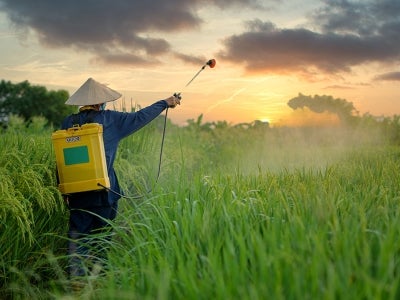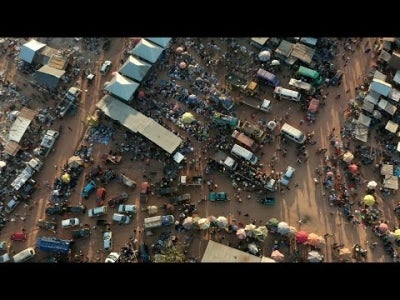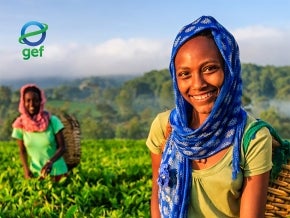
On this day in 1970, millions of people in the United States turned out for rallies across the country calling for environmental protections against oil spills, air pollution, toxic dumps, pesticides, and other hazards to the environment. That day marked the beginning of a movement that would spread around the globe, strengthen, and become the largest civic event the world has ever seen.
Today as we mark the 50th anniversary of Earth Day, we find ourselves in a dramatically different type of global crisis—but one whose roots increasingly look linked to humanity’s harmful impacts on ecosystems, including deforestation and biodiversity loss. We are amid a global pandemic for which the only recourse available to humanity is for non-essential workers to stay at home if possible, to slow the spread to prevent our health systems from collapsing under the strain of unconstrained spread. These measures are critical for humanity to survive but have acute impacts on the economy as many people must abandon their jobs in order to shelter in place. The economic turmoil in the coming days to years will require us to band together and work together in an unprecedented way to lift us and recreate human civilization.
COVID-19 has touched every corner of the Earth these past four months, causing devastating rates of death and illness while collective measures to limit the virus’ spread have resulted in economic hardship and the disruption or collapse of some global supply chains, including the artisanal gold supply chain.
As with every challenge that we face, the most vulnerable among us are the ones who are most deeply harmed by this virus and the economic consequences that have followed. Subsistence miners in the developing countries where the planetGOLD program works are more likely to experience severe illness if exposed to this virus due to the occupational health risks they already face, such as chronic respiratory illnesses and mercury exposure. And they are simultaneously the least able to weather economic downturns, work closures, and collapses of local gold buying markets.
What this pandemic has acutely highlighted is the fundamental truth that when communities and sectors operate outside of the formal economic system, they cannot benefit from any social protections that those systems provide. During this crisis, almost every government around the world is taking action to support displaced or quarantined workers, but by and large these benefits are only available to formalized workers.
This underscores one of the primary reasons why the Global Environment Facility supported the creation of the planetGOLD - to bring the artisanal and small-scale gold mining sector in as a full participant in the formal economy. If miners are formal participants in the economy, on top of a whole host of other benefits including access to finance, they generally have access to labor protections and a social safety net. With the number of emerging infectious disease outbreaks rising, bringing subsistence miners and other vulnerable groups under these protections is more important than ever.
We must also acknowledge that the further mining operations go into new, unknown areas to explore for gold, this could have devastating impacts on both ecosystems and humans. Studies suggest that it would make it even more likely that viruses like the novel coronavirus would be transmitted from animals to humans with this new exposure. Artisanal and small-scale gold mining operations need to use environmentally responsible methods of production to manage these risks. To this end, planetGOLD is developing operational criteria that consider provisions to mitigate environmental risks and prevent biodiversity loss.
As we confront COVID-19, one area the planetGOLD program is actively exploring is how to support efforts to free up cash in local markets by quickly setting up or scaling gold buying operations at the local level which will allow miners to get a fair price during a time when the supply chain to the global market has been disrupted. As the program continues to monitor COVID-19’s impacts, any news, resources or other materials will be provided on the COVID-19 Updates and Resources page.
Earth Day has always been about safeguarding the health of the planet, and of its inhabitants. This year as a global pandemic requires many of us to keep our distance, it also shows us how connected we all are to each other and to the earth. Let us come together in spirit to meet this moment of crisis with an even greater resolve to pursue systems changes that ensure environmental resilience and sustainable development for the most vulnerable among us. If we steer the course and support each other we will rise out of this, hopefully changed for the better and with a renewed commitment to protecting all life on our planet.
This piece was originally posted as a blog for planetGOLD, a GEF-supported initiative.


